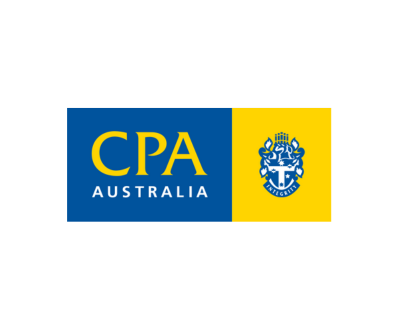This introductory subject provides an essential foundation in accounting, emphasising its critical role in business decision-making. Key accounting principles and different business structures are explained, enabling students to analyse financial statements, create a budget, and effectively evaluate business decisions. With a blend of theory and practical application, students will learn to use accounting information to make sound business decisions, while also considering ethics and sustainability.
Delve into the essentials of business law by exploring the legal frameworks surrounding corporations, not-for-profits, and churches. Gain insights into Australia's legal system, including criminal, contract, and workplace law, and understand the regulatory environment's impact on business operations, laying a solid legal foundation for future endeavours.
Understanding contemporary economics is essential for navigating today's complex financial landscape. This subject equips students with theoretical tools and practical applications, examining economics' historical, ethical, and theological dimensions. Topics include market dynamics, public policy, and the economics of religion, preparing students for informed analysis and decision-making.
Recognising the need for informed decisions in today's data-driven marketplace, this course introduces students to essential mathematical and statistical methods needed in business, with a focus on ethical data usage and effective decision-making. You will learn to critically analyse, summarise, and present data, understanding its significant role in not only for-profit environments but also in NGOs and NFP organisations.
Embark on a captivating journey through Church History Foundations, exploring the begginings of the global church, from its inception to this present day. Dive into significant events and influential stakeholders, examining the impact of Christianity across diverse cultural landscapes. Gain insights into the historical and contextual influences of the Church within local communities.
This foundational subject equips students with the essential management skills needed to design roles, recruit effectively, train teams, and develop fair compensation structures. By integrating these skills, students will be prepared to enhance job satisfaction and productivity within organisations, considering ethical and responsible management practices from a Christian perspective.
Understanding Australia's financial reporting landscape is crucial for success in diverse organizational contexts. Gain the knowledge and skills to interpret complex financial statements, apply accounting standards effectively, and remain informed about current developments, preparing you for real-world challenges in financial reporting.
Proficiency in management accounting is essential for informed organisational decision-making. Learn budgeting, costing, and performance evaluation techniques. Explore contemporary developments and gain skills in budget preparation and variance analysis. Master the tools for strategic financial planning and control, essential for navigating dynamic business environments.
Gaining a deep understanding of accounting theories enhances the ability to navigate complex financial reporting issues. This subject equips students with the skills to critically evaluate and apply various accounting theories within the framework set by the Australian Accounting Standards Board. Students will explore a range of contemporary issues, including fair value accounting and international harmonisation, providing a comprehensive perspective on current and emerging trends in accounting practice.
As financial transparency becomes increasingly crucial, this unit shines a light on the critical role of auditing in ensuring the reliability of financial statements. Students will delve into the auditing process and its essential legal and ethical foundations, gaining insights into risk assessment, audit strategy design, and report formulation.
This unit highlights technology's role in enhancing business decision-making, positioning it as a supportive tool rather than the main objective. Students will discover how accounting and business information systems can drive organisational efficiency and governance. The curriculum emphasises ethical data practices, risk management, and strategic information utilisation, preparing learners to tackle modern challenges in information management to maintain a competitive edge.
Grasping Australian corporate law is crucial for effective company management and operation. This subject offers an examination of business structures, the impact of incorporation, and the roles of directors and officers within both for-profit and not-for-profit sectors. Students will gaining critical insight into corporate governance, the Corporations Act 2001 (Cth), the responsibilities of company directors, and the operations of ASIC.
Gaining proficiency in practical financial decision-making is crucial for both personal and business success. Through this subject, students will uncover how the global financial system functions, assess risks in capital markets, and learn strategies for financing significant projects and valuing businesses. The course also addresses raising capital and managing debt with a focus on ethical considerations.
Navigating the complexities of taxation law is important for informed personal and business decision-making. This subject prepares students to critically analyse, resolve issues, and perform taxation calculations. Through research and practical application of tax law, students will develop dynamic skills to adapt to legal changes, enhancing their ability to manage future taxation challenges effectively.
This subject will commence in 2025
This subject will commence in 2025
This subject will commence in 2025
This subject will commence in 2025
This subject will commence in 2025
Mastering organisational behaviour is essential for thriving in the complex environment of the modern workplace. This unit focuses on the behaviour of individuals and groups within organisations, tracing from historical roots to modern-day practices in management, leading effectively, and fostering collaborative teams. Combining academic theories with real-world applications, it equips students with the tools to understand and influence organisational dynamics.
This subject is delivered for City Harvest Church students.
This subject explores the foundational values of integrity, stewardship, and justice, providing students with practical tools to navigate ethical challenges in business. While exploring the role of ethics in organisational dynamics and corporate governance, students will delve into ethical philosophies and examine their direct and indirect impacts on the economy, business practices, and individual responses. The course builds an understanding of global business ethics and their application in real-world contexts through a study of diverse cultural perspectives.
Students will learn how ethical decision-making rooted in Christian principles can transform the workplace and inspire a positive impact in the broader community. Through case studies, discussions, and real-world applications, students will develop their own personal ethos with a focus on integrating ethical principles into business practices informed by a Christian worldview and they will learn how to align their professional actions with a faith-driven purpose, ensuring responsible leadership and sustainable success.
This subject will commence in 2025
This subject will commence in 2025
This subject will commence in 2025
This subject will commence in 2025
This subject will commence in 2025
Understanding consumer behaviour is pivotal for crafting effective marketing strategies. This subject delves into the psychological, social, and cultural factors that influence buying decisions, equipping students with the ability to analyse and make predictions on consumer actions. Through exploring key theories and frameworks, students will learn to apply this knowledge to real-world marketing decisions.
Mastering organisational behaviour is essential for thriving in the complex environment of the modern workplace. This unit focuses on the behaviour of individuals and groups within organisations, tracing from historical roots to modern-day practices in management, leading effectively, and fostering collaborative teams. Combining academic theories with real-world applications, it equips students with the tools to understand and influence organisational dynamics.
Managing sales effectively is essential for anyone looking to thrive in business by effectively making and retaining customers. This unit equips students with both theoretical knowledge and practical skills in sales, including working with CRM systems and developing robust communication and negotiation techniques. Students will learn to craft comprehensive sales strategies, perform detailed market analyses, and create value for customers.
Non-Profit Organisations have unique challenges to navigate in creating social and spiritual value. This unit explores multi-stakeholder marketing, teaching how to build movements, transform supporters into advocates, engage sponsors, and secure grants. By developing a strategic marketing plan tailored to NFPs, students will learn to balance ethical values with effective marketing strategies.
Exploring how organisations connect with their audiences, this subject delves into the complexities of marketing communication strategies, providing insights into mass communication, media planning, and the digital revolution, including social media. Students will learn to critically analyse various communication theories, design impactful messages, and create an effective media mix tailored to specific target audiences.
Conducting effective market research is essential for understanding customer needs and driving informed decision-making within organisations. Through this unit, students will be equipped with the skills to design, conduct, and analyse both qualitative and quantitative research, transforming data into actionable insights. Students will explore the strategic role of market research, its applications, and ethical considerations across various sectors, including corporate and church environments.
There are several challenges inherent in international marketing including cultural sensitivity and strategic planning in overseas operations. This unit provides essential tools to analyse cultural differences and develop effective cross-cultural marketing strategies. Students will evaluate international marketing theories, design comprehensive marketing plans, and learn to navigate complex issues, including ethical considerations and logistical challenges.
Itching to connect the realm of the classroom with some real-life experience? This unit is designed with just this aim in mind. Students will have the chance to engage academically with issues pertaining to their business specialisation plus experience a hands-on 100-hour placement with a variety of formats to choose from.
This is the final primary Professional Experience placement, whereby students take full responsibility for a classroom in building on their skills, knowledge and attitudes and working more closely related to those of beginning teaching.Students will undergo the planning, implementation, assesment of students and reporting, including embedding individualised programs for specific school students to support inclusion and diversity. Students will need to consider gaps and silences evident in discourses about learners and learning and critically engage with ethical practices for inclusivity.
This final Professional Experience subject involves the student taking full responsibility for a classroom to develop a range of skills. Student will have full responsibility for observing, planning, implementing, student assessment and reporting, and evaluating units of work, including embedding individualised programs for specific school students to support inclusion and diversity. By considering the gaps and silences evident in discourses about learners and learning and critically engage with ethical practices for inclusivity.The student will submit their Teacher Performance Assessment (TPA) at the conclusion of this subject.
This final Professional Experience subject involves the pre-service teacher taking full responsibility for a classroom and develop more fully a range of skills, knowledge and attitudes more closely related to those of beginning teaching. The pre-service teacher will have full responsibility for observing, planning, implementing, student assessment and reporting, and evaluating units of work, including embedding individualised programs for specific school students to support inclusion and diversity.
Advanced Professional Practice in Business builds on Professional Practice in Business. It provides a chance for students to continue the challenging but rewarding combination of academic reflection upon contemporary business issues and hands-on experience. Students will also do 100 hours placement of the course of the semester.
In today's fast-paced financial landscape, informed decision-making is key to personal and organisational success. Financial Decision Making equips students with vital skills, focusing on strategic and everyday financial choices. With practical case studies from Australia and beyond, the unit covers the time value of money, risk evaluation, and cash flow analysis. Students will learn how to apply financial planning strategies to navigate complex challenges effectively.
Navigating the complexities of taxation law is important for informed personal and business decision-making. This subject prepares students to critically analyse, resolve issues, and perform taxation calculations. Through research and practical application of tax law, students will develop dynamic skills to adapt to legal changes, enhancing their ability to manage future taxation challenges effectively.
For not-for-profits and churches, understanding governance, law, and taxation is critical for effective management. This unit equips students with a sound understanding of the specific regulatory and taxation frameworks applicable to NFPs and religious organisations in Australia. Students will learn to apply this knowledge to real-world scenarios, critically engaging with contemporary policy debates surrounding these sectors.
Gaining proficiency in practical financial decision-making is crucial for both personal and business success. Through this subject, students will uncover how the global financial system functions, assess risks in capital markets, and learn strategies for financing significant projects and valuing businesses. The course also addresses raising capital and managing debt with a focus on ethical considerations.
Grasping Australian corporate law is crucial for effective company management and operation. This subject offers an examination of business structures, the impact of incorporation, and the roles of directors and officers within both for-profit and not-for-profit sectors. Students will gaining critical insight into corporate governance, the Corporations Act 2001 (Cth), the responsibilities of company directors, and the operations of ASIC.
Recognising the need for informed decisions in today's data-driven marketplace, this course introduces students to essential mathematical and statistical methods needed in business, with a focus on ethical data usage and effective decision-making. You will learn to critically analyse, summarise, and present data, understanding its significant role in not only for-profit environments but also in NGOs and NFP organisations.
Through this subject, students are equipped with critical insights into managing financial integrity risks, particularly within not-for-profits and churches. Through a blend of theoretical understanding and practical application, students will design a financial integrity system, crucial for protecting the assets and reputations of organisations within their communities.
Managing sales effectively is essential for anyone looking to thrive in business by effectively making and retaining customers. This unit equips students with both theoretical knowledge and practical skills in sales, including working with CRM systems and developing robust communication and negotiation techniques. Students will learn to craft comprehensive sales strategies, perform detailed market analyses, and create value for customers.
Exploring how organisations connect with their audiences, this subject delves into the complexities of marketing communication strategies, providing insights into mass communication, media planning, and the digital revolution, including social media. Students will learn to critically analyse various communication theories, design impactful messages, and create an effective media mix tailored to specific target audiences.
Understanding consumer behaviour is pivotal for crafting effective marketing strategies. This subject delves into the psychological, social, and cultural factors that influence buying decisions, equipping students with the ability to analyse and make predictions on consumer actions. Through exploring key theories and frameworks, students will learn to apply this knowledge to real-world marketing decisions.
Conducting effective market research is essential for understanding customer needs and driving informed decision-making within organisations. Through this unit, students will be equipped with the skills to design, conduct, and analyse both qualitative and quantitative research, transforming data into actionable insights. Students will explore the strategic role of market research, its applications, and ethical considerations across various sectors, including corporate and church environments.
There are several challenges inherent in international marketing including cultural sensitivity and strategic planning in overseas operations. This unit provides essential tools to analyse cultural differences and develop effective cross-cultural marketing strategies. Students will evaluate international marketing theories, design comprehensive marketing plans, and learn to navigate complex issues, including ethical considerations and logistical challenges.
Itching to connect the realm of the classroom with some real-life experience? This unit is designed with just this aim in mind. Students will have the chance to engage academically with issues pertaining to their business specialisation plus experience a hands-on 100-hour placement with a variety of formats to choose from.
This subject is delivered for City Harvest Church students.
There are several challenges inherent in international marketing including cultural sensitivity and strategic planning in overseas operations. This unit provides essential tools to analyse cultural differences and develop effective cross-cultural marketing strategies. Students will evaluate international marketing theories, design comprehensive marketing plans, and learn to navigate complex issues, including ethical considerations and logistical challenges.
Conducting effective market research is essential for understanding customer needs and driving informed decision-making within organisations. Through this unit, students will be equipped with the skills to design, conduct, and analyse both qualitative and quantitative research, transforming data into actionable insights. Students will explore the strategic role of market research, its applications, and ethical considerations across various sectors, including corporate and church environments.
Exploring how organisations connect with their audiences, this subject delves into the complexities of marketing communication strategies, providing insights into mass communication, media planning, and the digital revolution, including social media. Students will learn to critically analyse various communication theories, design impactful messages, and create an effective media mix tailored to specific target audiences.
Non-Profit Organisations have unique challenges to navigate in creating social and spiritual value. This unit explores multi-stakeholder marketing, teaching how to build movements, transform supporters into advocates, engage sponsors, and secure grants. By developing a strategic marketing plan tailored to NFPs, students will learn to balance ethical values with effective marketing strategies.
Understanding consumer behaviour is pivotal for crafting effective marketing strategies. This subject delves into the psychological, social, and cultural factors that influence buying decisions, equipping students with the ability to analyse and make predictions on consumer actions. Through exploring key theories and frameworks, students will learn to apply this knowledge to real-world marketing decisions.
Managing sales effectively is essential for anyone looking to thrive in business by effectively making and retaining customers. This unit equips students with both theoretical knowledge and practical skills in sales, including working with CRM systems and developing robust communication and negotiation techniques. Students will learn to craft comprehensive sales strategies, perform detailed market analyses, and create value for customers.
Mastering organisational behaviour is essential for thriving in the complex environment of the modern workplace. This unit focuses on the behaviour of individuals and groups within organisations, tracing from historical roots to modern-day practices in management, leading effectively, and fostering collaborative teams. Combining academic theories with real-world applications, it equips students with the tools to understand and influence organisational dynamics.
Advanced Professional Practice in Business builds on Professional Practice in Business. It provides a chance for students to continue the challenging but rewarding combination of academic reflection upon contemporary business issues and hands-on experience. Students will also do 100 hours placement of the course of the semester.
Itching to connect the realm of the classroom with some real-life experience? This unit is designed with just this aim in mind. Students will have the chance to engage academically with issues pertaining to their business specialisation plus experience a hands-on 100-hour placement with a variety of formats to choose from.
This final Professional Experience subject involves the pre-service teacher taking full responsibility for a classroom and develop more fully a range of skills, knowledge and attitudes more closely related to those of beginning teaching. The pre-service teacher will have full responsibility for observing, planning, implementing, student assessment and reporting, and evaluating units of work, including embedding individualised programs for specific school students to support inclusion and diversity.
This final Professional Experience subject involves the student taking full responsibility for a classroom to develop a range of skills. Student will have full responsibility for observing, planning, implementing, student assessment and reporting, and evaluating units of work, including embedding individualised programs for specific school students to support inclusion and diversity. By considering the gaps and silences evident in discourses about learners and learning and critically engage with ethical practices for inclusivity.The student will submit their Teacher Performance Assessment (TPA) at the conclusion of this subject.
This is the final primary Professional Experience placement, whereby students take full responsibility for a classroom in building on their skills, knowledge and attitudes and working more closely related to those of beginning teaching.Students will undergo the planning, implementation, assesment of students and reporting, including embedding individualised programs for specific school students to support inclusion and diversity. Students will need to consider gaps and silences evident in discourses about learners and learning and critically engage with ethical practices for inclusivity.
This subject is delivered for City Harvest Church students.
There are several challenges inherent in international marketing including cultural sensitivity and strategic planning in overseas operations. This unit provides essential tools to analyse cultural differences and develop effective cross-cultural marketing strategies. Students will evaluate international marketing theories, design comprehensive marketing plans, and learn to navigate complex issues, including ethical considerations and logistical challenges.
Conducting effective market research is essential for understanding customer needs and driving informed decision-making within organisations. Through this unit, students will be equipped with the skills to design, conduct, and analyse both qualitative and quantitative research, transforming data into actionable insights. Students will explore the strategic role of market research, its applications, and ethical considerations across various sectors, including corporate and church environments.
Exploring how organisations connect with their audiences, this subject delves into the complexities of marketing communication strategies, providing insights into mass communication, media planning, and the digital revolution, including social media. Students will learn to critically analyse various communication theories, design impactful messages, and create an effective media mix tailored to specific target audiences.
Non-Profit Organisations have unique challenges to navigate in creating social and spiritual value. This unit explores multi-stakeholder marketing, teaching how to build movements, transform supporters into advocates, engage sponsors, and secure grants. By developing a strategic marketing plan tailored to NFPs, students will learn to balance ethical values with effective marketing strategies.
Understanding consumer behaviour is pivotal for crafting effective marketing strategies. This subject delves into the psychological, social, and cultural factors that influence buying decisions, equipping students with the ability to analyse and make predictions on consumer actions. Through exploring key theories and frameworks, students will learn to apply this knowledge to real-world marketing decisions.
Managing sales effectively is essential for anyone looking to thrive in business by effectively making and retaining customers. This unit equips students with both theoretical knowledge and practical skills in sales, including working with CRM systems and developing robust communication and negotiation techniques. Students will learn to craft comprehensive sales strategies, perform detailed market analyses, and create value for customers.
Mastering organisational behaviour is essential for thriving in the complex environment of the modern workplace. This unit focuses on the behaviour of individuals and groups within organisations, tracing from historical roots to modern-day practices in management, leading effectively, and fostering collaborative teams. Combining academic theories with real-world applications, it equips students with the tools to understand and influence organisational dynamics.
Advanced Professional Practice in Business builds on Professional Practice in Business. It provides a chance for students to continue the challenging but rewarding combination of academic reflection upon contemporary business issues and hands-on experience. Students will also do 100 hours placement of the course of the semester.
Itching to connect the realm of the classroom with some real-life experience? This unit is designed with just this aim in mind. Students will have the chance to engage academically with issues pertaining to their business specialisation plus experience a hands-on 100-hour placement with a variety of formats to choose from.
This final Professional Experience subject involves the pre-service teacher taking full responsibility for a classroom and develop more fully a range of skills, knowledge and attitudes more closely related to those of beginning teaching. The pre-service teacher will have full responsibility for observing, planning, implementing, student assessment and reporting, and evaluating units of work, including embedding individualised programs for specific school students to support inclusion and diversity.
This final Professional Experience subject involves the student taking full responsibility for a classroom to develop a range of skills. Student will have full responsibility for observing, planning, implementing, student assessment and reporting, and evaluating units of work, including embedding individualised programs for specific school students to support inclusion and diversity. By considering the gaps and silences evident in discourses about learners and learning and critically engage with ethical practices for inclusivity.The student will submit their Teacher Performance Assessment (TPA) at the conclusion of this subject.
This is the final primary Professional Experience placement, whereby students take full responsibility for a classroom in building on their skills, knowledge and attitudes and working more closely related to those of beginning teaching.Students will undergo the planning, implementation, assesment of students and reporting, including embedding individualised programs for specific school students to support inclusion and diversity. Students will need to consider gaps and silences evident in discourses about learners and learning and critically engage with ethical practices for inclusivity.
This introductory subject provides an essential foundation in accounting, emphasising its critical role in business decision-making. Key accounting principles and different business structures are explained, enabling students to analyse financial statements, create a budget, and effectively evaluate business decisions. With a blend of theory and practical application, students will learn to use accounting information to make sound business decisions, while also considering ethics and sustainability.
Delve into the essentials of business law by exploring the legal frameworks surrounding corporations, not-for-profits, and churches. Gain insights into Australia's legal system, including criminal, contract, and workplace law, and understand the regulatory environment's impact on business operations, laying a solid legal foundation for future endeavours.
Understanding contemporary economics is essential for navigating today's complex financial landscape. This subject equips students with theoretical tools and practical applications, examining economics' historical, ethical, and theological dimensions. Topics include market dynamics, public policy, and the economics of religion, preparing students for informed analysis and decision-making.
This unit highlights technology's role in enhancing business decision-making, positioning it as a supportive tool rather than the main objective. Students will discover how accounting and business information systems can drive organisational efficiency and governance. The curriculum emphasises ethical data practices, risk management, and strategic information utilisation, preparing learners to tackle modern challenges in information management to maintain a competitive edge.
This subject will commence in 2025
This subject will commence in 2025
Navigating the complexities of taxation law is important for informed personal and business decision-making. This subject prepares students to critically analyse, resolve issues, and perform taxation calculations. Through research and practical application of tax law, students will develop dynamic skills to adapt to legal changes, enhancing their ability to manage future taxation challenges effectively.
For not-for-profits and churches, understanding governance, law, and taxation is critical for effective management. This unit equips students with a sound understanding of the specific regulatory and taxation frameworks applicable to NFPs and religious organisations in Australia. Students will learn to apply this knowledge to real-world scenarios, critically engaging with contemporary policy debates surrounding these sectors.
In the intricate landscape of corporate group accounting, mastering the accounting methods for managing investments in entities is essential. This unit equips students with the skills to navigate the classifications of investments as subsidiaries, associates, or joint ventures and the complexities of financial reporting as per Australian Accounting Standards. It also covers the preparation of consolidated financial statements, equity accounting, and other advanced topics.
The books of Proverbs and Psalms are two of the most well-known and loved texts within the Old Testament/Hebrew Bible. In addition to Proverbs, the books of Job and Ecclesiastes comprise what is known as Wisdom Literature, a genre of writings from the ancient Near East comprised of sayings and teachings by sages and the wise about the breadth of the human experience. Psalms is an anthology of Hebrew hymns to be used either in collective liturgical settings or for personal expression. Throughout this course, we will engage with tools of exegesis to reflect on how to read the Wisdom and Psalms text, as well as the Song of Songs, which is neither part of Psalms or Wisdom Literature, yet is Hebrew poetry and considers wisdom in relationships.
As financial transparency becomes increasingly crucial, this unit shines a light on the critical role of auditing in ensuring the reliability of financial statements. Students will delve into the auditing process and its essential legal and ethical foundations, gaining insights into risk assessment, audit strategy design, and report formulation.
Gaining a deep understanding of accounting theories enhances the ability to navigate complex financial reporting issues. This subject equips students with the skills to critically evaluate and apply various accounting theories within the framework set by the Australian Accounting Standards Board. Students will explore a range of contemporary issues, including fair value accounting and international harmonisation, providing a comprehensive perspective on current and emerging trends in accounting practice.
No curriculum description, objectives, outcomes or content available
No curriculum description, objectives, outcomes or content available
Understanding financial statements is crucial for making informed business decisions. In this subject, students learn to analyse and interpret financial data, assess business strategies, and critically evaluate financial disclosures. They develop skills to effectively research and use financial information for investment and credit recommendations. The unit also covers advanced valuation techniques and economic theories to prepare students for real-world financial challenges.
In today's fast-paced financial landscape, informed decision-making is key to personal and organisational success. Financial Decision Making equips students with vital skills, focusing on strategic and everyday financial choices. With practical case studies from Australia and beyond, the unit covers the time value of money, risk evaluation, and cash flow analysis. Students will learn how to apply financial planning strategies to navigate complex challenges effectively.
Grasping Australian corporate law is crucial for effective company management and operation. This subject offers an examination of business structures, the impact of incorporation, and the roles of directors and officers within both for-profit and not-for-profit sectors. Students will gaining critical insight into corporate governance, the Corporations Act 2001 (Cth), the responsibilities of company directors, and the operations of ASIC.
Gaining proficiency in practical financial decision-making is crucial for both personal and business success. Through this subject, students will uncover how the global financial system functions, assess risks in capital markets, and learn strategies for financing significant projects and valuing businesses. The course also addresses raising capital and managing debt with a focus on ethical considerations.
Navigating the complexities of taxation law is important for informed personal and business decision-making. This subject prepares students to critically analyse, resolve issues, and perform taxation calculations. Through research and practical application of tax law, students will develop dynamic skills to adapt to legal changes, enhancing their ability to manage future taxation challenges effectively.










